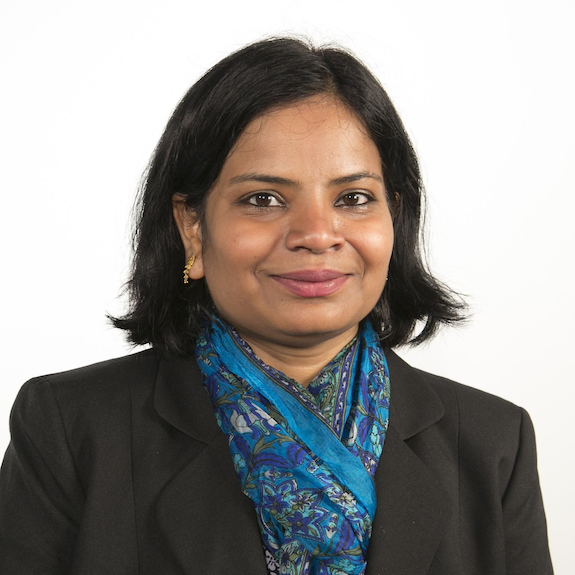Preparing for Real Life Through AI Generated Role Play
by Prof Kusum Knapczyk
See here
Bio: Prof Kusum Knapczyk is a Senior Hindi lecturer at Duke University. Before joining Duke in 2016, she served as Hindi Lecturer at the University of Colorado Boulder and Indiana University, Bloomington. Kusum has taught Hindi at SASLI (South Asia Summer Language Institute) at the University of Wisconsin, Madison. She has also taught Hindi at the University of Texas at Austin and in several STARTALK intensive Hindi language programs throughout the US, including STARTALK: Hindi in the Rockies at the University of Colorado Boulder and Yuva Hindi Sansthan at Pennsylvania.

Michigan State University project: OER Production, Structure and Dissemination
by Rajiv Ranjan, Associate Professor
See here
Bio: Rajiv Ranjan is an Associate Professor in the Department of Linguistics, Languages, and Cultures at Michigan State University (MSU). At MSU, Rajiv is associated with the Asian Studies Program and Master of Arts in Foreign Language Teaching (MAFLT) Program. He is also the mentor for the Fulbright Language Teaching Assistants (FLTAs). Before joining MSU, Rajiv Ranjan taught as a graduate teaching assistant at The University of Iowa, Iowa City (2010-2015) where he received his PhD in Second Language Acquisition in 2015.
In addition to his classroom-teaching experience, Rajiv taught the online graduate courses “FLT 860 Foreign/Second Language Acquisition” at MSU, and “Hindi and Urdu Language Structure for Teaching” at Kean University. He taught an immersion program for the South Asia Summer Language Institute (SASLI) during Summer 2016 at University of Wisconsin, Madison and he taught in a study abroad context during the Summers 2015, 2017, and 2018 for the American Institute of Indian Studies (AIIS) in India.
Rajiv’s primary area of research is generative approach to second language acquisition (SLA). His research interests also include socio-cultural approach to SLA, second language writing and speaking, language pedagogy, and morpho-syntax. . He is also an author of two OER textbooks, Basic Hindi, and Basic Urdu. He also co-authored OER books, Hindi-Urdu, Basic Persian, and Basic Tamil.
OER Repository of Heritage Language Teaching & Learning Modules
by Angela Lee-Smith, Mansi Bajaj, Ninghui Liang, Peisong Xu & Sarab Al Ani
See here
Bio: Mansi Bajaj (she/ her) is a Lector of Hindi at Yale. As a language educator, there are three main values that she seeks to exemplify: addressing socio-cultural issues for a broader understanding, utilizing diverse language inputs, and creating an interactive and safe classroom space. Presently, she is working on an Open Educational Resources (OER) project to increase Diversity, Equity, Inclusivity and Belonging (DEIB) in heritage language pedagogy. She is one of the two winners of the 2024 MAFLT LCTL Innovation Award. This award recognizes outstanding, innovative, and transformative uses of technology in the teaching of Less Commonly Taught Languages (LCTLs).

Innovative Hindi Instruction: Enhancing Learning Through Technologies
by Dr. Nilakshi Phukan
See here
H5P + AI to Build Proficiency
by Bhavya Singh
See here
Bio: Bhavya Singh is an Instructional Technology Specialist and Hindi Pedagogy Expert at the Teacher Training Institute at New York University. She is also a strand leader in Strand I (Intelligence) at the Stanford World Language Project, Graduate School of Education, Stanford University, California, and an instructional technology expert in the STARTALK Stanford Integrative Leadership Program. Since 2023, she has served as an Educational Specialist/ Resource Teacher at Pleasanton Unified School District, California.
